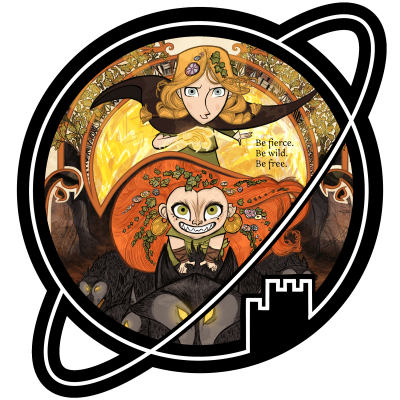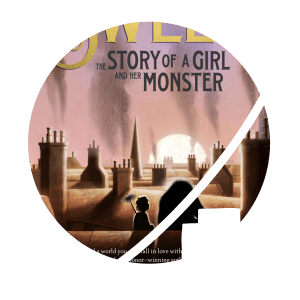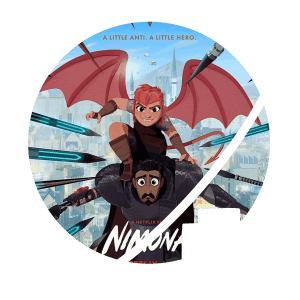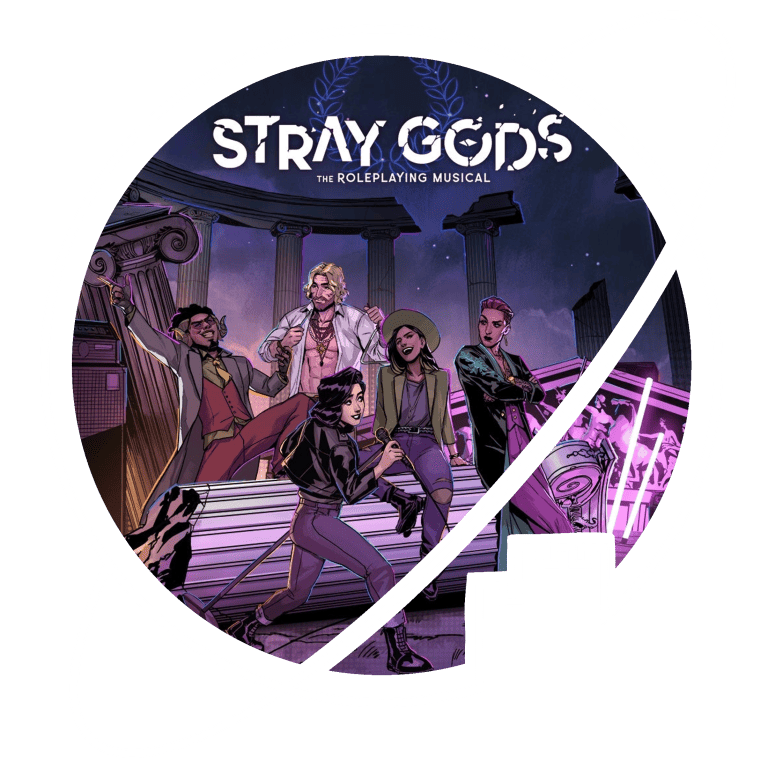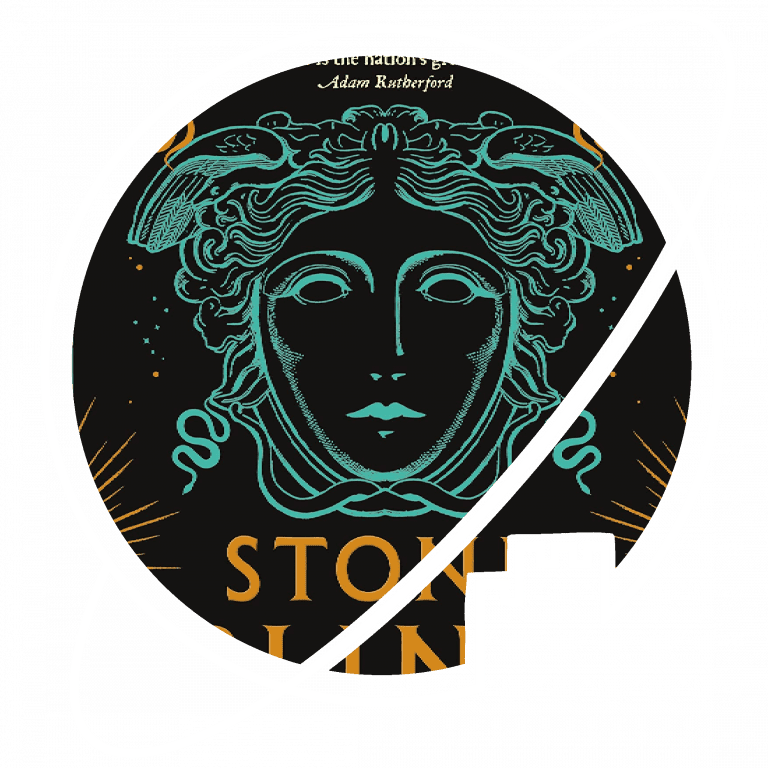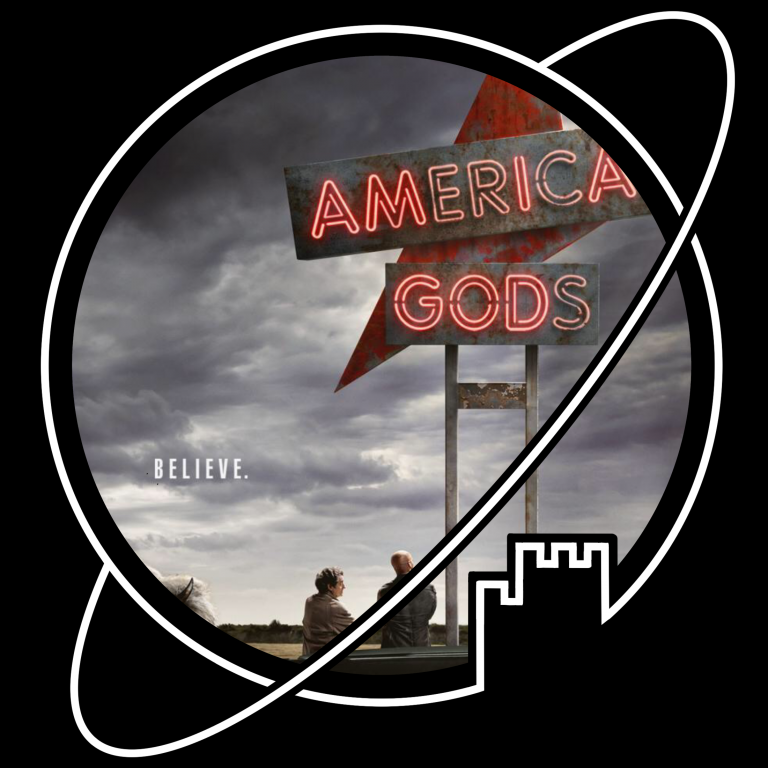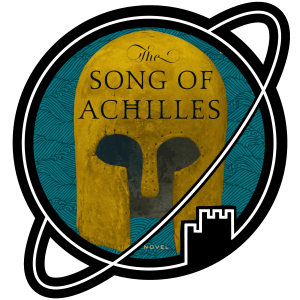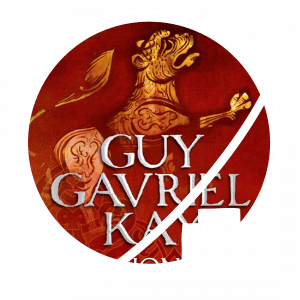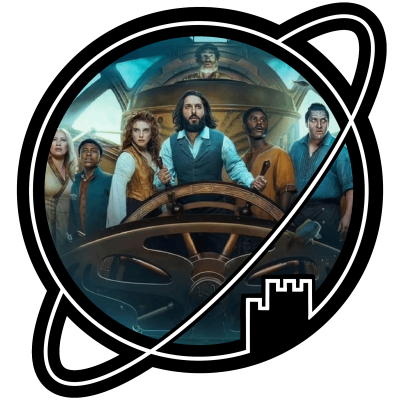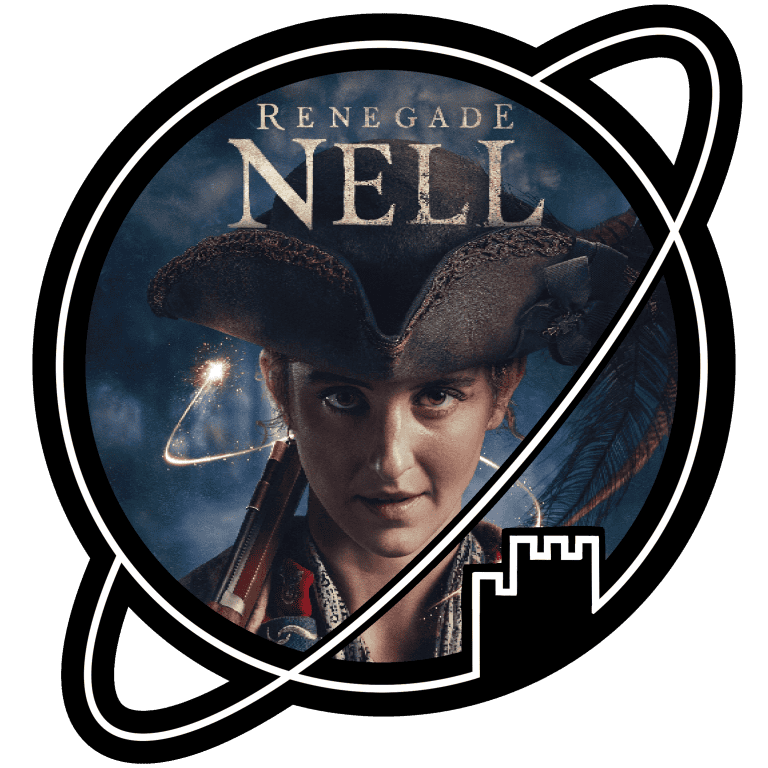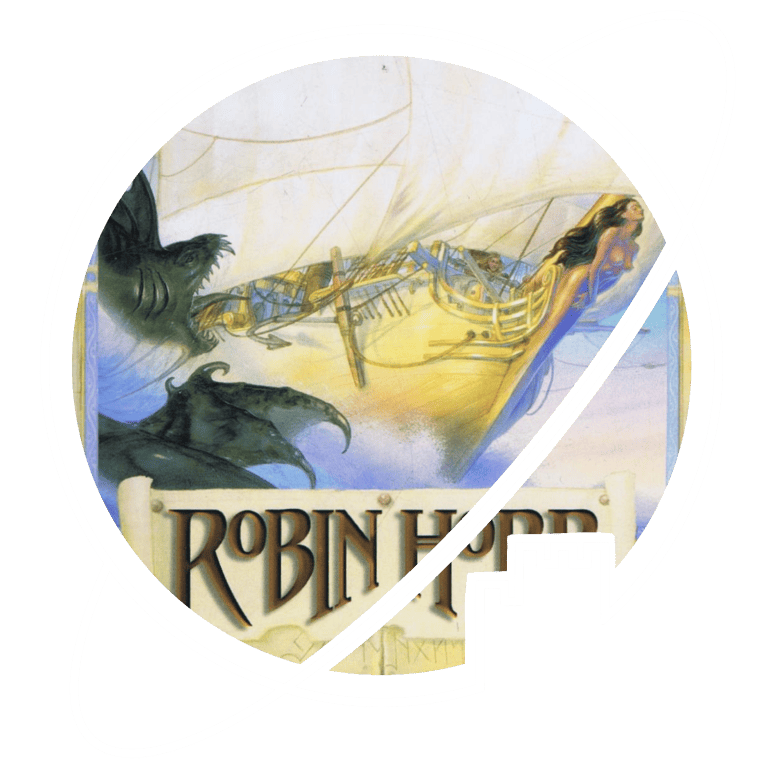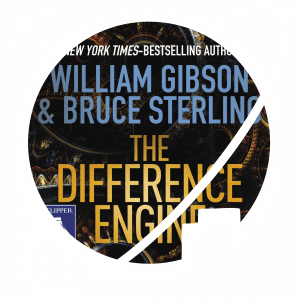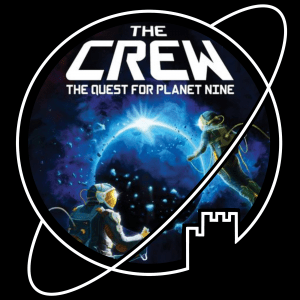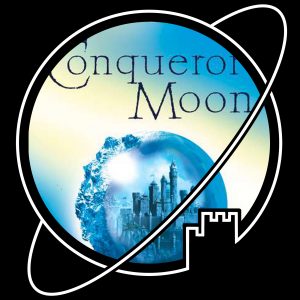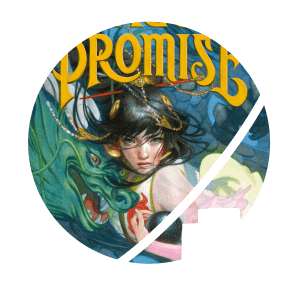Welcome to the Escape Velocity Collection!
We are an opinionated group of friends reviewing all sorts of fantasy and science fiction media. Don’t forget to get to know the curators and visit our curated Collection, where we discuss the stories that never cease to transport us to another world.
Will you escape with us?
LATEST POSTS:
- Novel written by Tonke Dragt
- Published in 1969
- Followed by Ogen van Tijgers
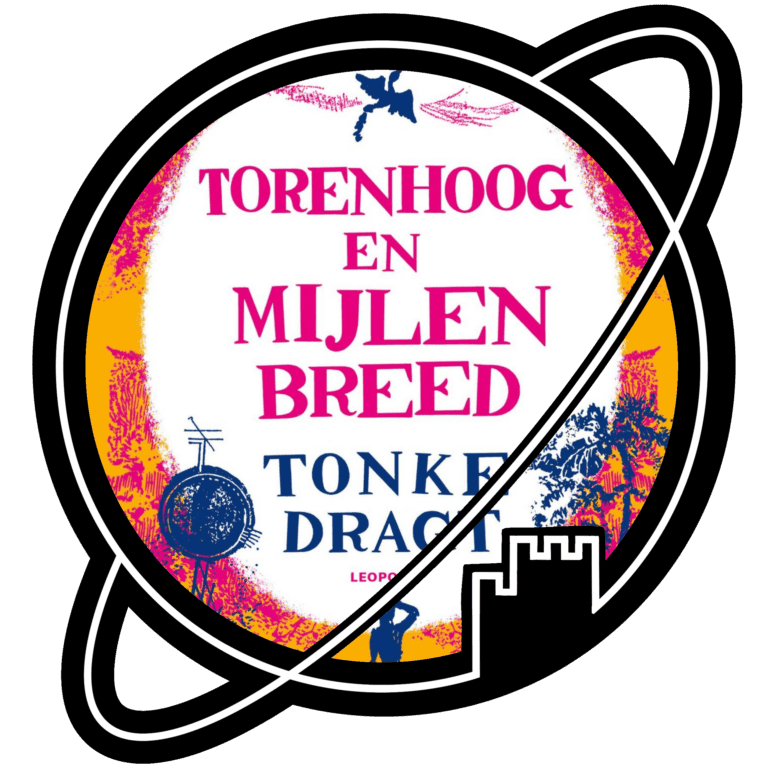

Listened to the audiobook with Ricardo Blei. Well-read.
I often say that I like to read classics, and Torenhoog en Mijlenbreed is certainly a classic of Dutch science fiction and children’s literature. Unfortunately, it appears never to have been translated to English. Ironically, Dragt derived the Dutch title Torenhoog en Mijlenbreed from a line of Robert Louis Stevenson’s poem Travel: “Where are forests, hot as fire / Wide as England, tall as a spire.”
Dragt didn’t just draw inspiration for the title from the poem: in her imagination, Venus is a warm and moist planet with a dense forest cover hidden under thick layers of rainclouds. Humans have established permanent bases underneath large domes, but do not dare to venture into the forests. As a result, Venus remains a mystery despite many generations of planetary researchers exploring the areas around the domes.
To us, who can google pictures of the bare volcanic plains of the surface of Venus, the story seems about as outdated as Arthur Clarke’s The Sands of Mars, but when Torenhoog en Mijlenbreed was published in 1969, no probe had penetrated the clouds of Venus’ atmosphere yet, and the story was at least possible.
Either way, it doesn’t matter too much whether the story takes place on Venus or some other imagined exoplanet. The story is ultimately not about the planet as much as it is about human interactions and communication.
Dragt sets this up very well: the close environment of the dome, the mysterious policies of the headquarters keeping researchers out of the forest, the psychological interviews the researchers undergo all add to the sense that the main character is being hemmed in and held back, causing the reader to share his curiosity for the fiery forests of Venus.
When the protagonist finally takes action, the increasingly complex emotional interactions with the various characters that follow are the perfect backdrop to explore what it really means to communicate and understand, whether over radios, with words, or in thoughts.
Torenhoog en Mijlenbreed is a children’s book, but it is not the themes but perhaps rather the level of complexity of the words and worldbuilding that show it is aimed at younger readers. I think Torenhoog en Mijlenbreed achieves an emotional depth that many grown up sci-fi stories never reach.
All I can say is that Torenhoog en Mijlenbreed once more prove that Tonke Dragt is the undisputed master of the speculative genre in Dutch. Again, it is unfortunate that the novel was never translated to English – but if you read Dutch and have never tried it, I have no hesitation recommending it to readers of all ages!
- Movie directed by Tomm Moore and Ross Stewart
- With the voices of Honor Kneafsey, Eva Whittaker, Sean Bean, Simon McBurney, Maria Doyle Kennedy, Tommy Tiernan, Jon Kenny and John Morton
- Released December 2020
- Runtime: 103 minutes

If my memory serves me right, it was an elaborate Tumblr post in 2020 that made a very strong case for watching this movie. Such a strong case even, that in the past few years I occasionally went out of my way to try and find a way to watch it. Without success, it seems, till Robin finally provided me with a solution this year (2025 for those from the future).
Honestly, Wolfwalkers deserves every recommendation. The animation in this movie is truly enchanting and unlike anything I’ve seen before. At times you can almost see how everything was drawn -the different pencil strokes and sketch lines included – and painted, and how much work the animators put into it. It isn’t smooth, but at the same time extremely smooth. Frankly, I’m not knowledgeable enough about animation techniques to do it justice. All I can say is that its art style very much suits the fairy tale vibes of Wolfwalkers, and left me perplexed.
The story of Wolfwalkers isn’t too complex, but very well executed (disregarding some few minor pacing choices). I felt for the characters and it took me some time to fully grasp where the story was going precisely. The narrative especially shines in its themes, specifically the dichtomy between societal norms and personal freedom and nature. These themes work on multiple levels (just like in real life!) and are thus not only reflected in Robyn and her struggle to adjust to her new restricted life, but also to how the English (yup, they’re at it again) impose their culture and religion on the Irish people and nature itself.
All of the above, combined with a equally strong soundtrack, ensured that Wolfwalkers has made its way into my heart. Hopefully, this review can act in a similiar way to you as a certain Tumblr post once did for me. Wolfwalkers is a true piece of art with a lot of love behind it. That is a rare thing to come across.
- Novel written by Neal Stephenson
- Published in June 1992
- Standalone
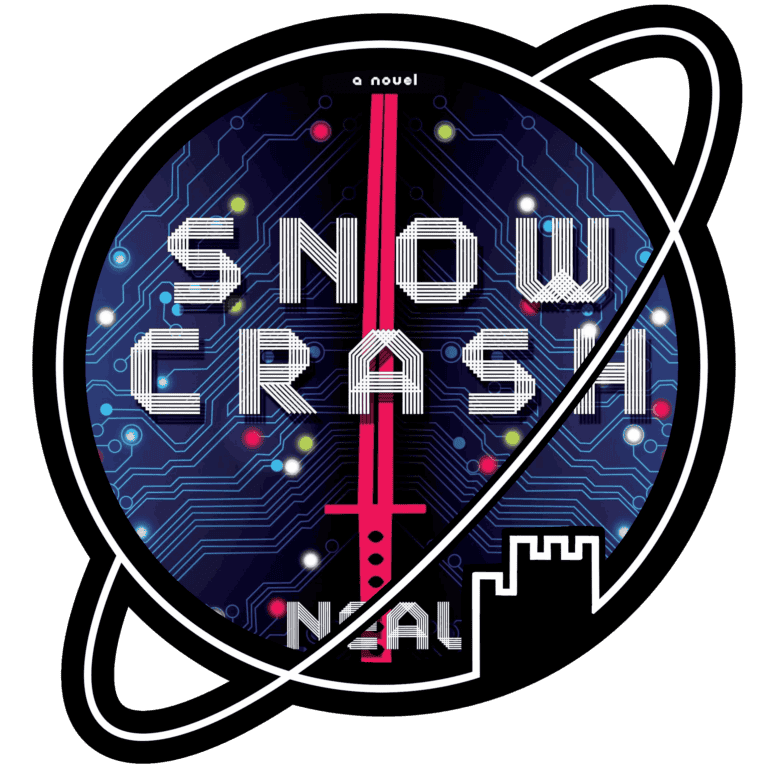

I think Neal Stephenson is an acquired taste.
When I first read Termination Shock, I don’t think I really ‘got’ it. I’ve read a few of Stephenson’s books since then, and the more of them I read, the more they grow on me.
His books are technology-focused but mostly rooted in actual possibilities; they are imaginative but also well thought-through; they are complex but he brings all the different strands of story together nicely in the end. Snow Crash is a very early Stephenson book, and while some of the elements of his style appear to still be developing, they are all already there.
One thing that sets Snow Crash apart from some or Stephenson’s later work is the bold surreality of the dystopia he creates. In Snow Crash, the world has fallen apart to the extent that nations have become franchise stores and franchise stores have become nations. The main characters care the rather on the nose names of ‘Hiro Protagonist’ and ‘Y.T.’ (’Yours Truly’). It is a world where the Mafia is a pizza company and security is contracted out to Admiral Bob’s National Security, where one man can be a nuclear power and where brains can get hacked or infected with a computer virus.
Snow Crash is so profoundly weird that it took some real work to get into the mindset – the first third of the book is funny but really difficult to follow because the world is so alien. Once I bought into it and suspended my disbelief, though, Snow Crash turned into a surprisingly gripping high-paced, high-tech mystery.
It is worth keeping mind that Stephenson wrote Snow Crash in 1992, in the early early days of the internet, when there were only a couple of hundred of websites and only big institutions were online.
Against that backdrop, the world he imagined is incredibly impressive. He popularised terms such as ‘metaverse’ and ‘avatar’ and While some aspects of the world of Snow Crash have been overtaken by reality, a lot of the trajectory Stephenson sketched might actually still come to fruition. Even a reader in 2025 can feel this is a somewhat plausible near future for our society.
That might be because Neal Stephenson manages uniquely well to bring the ‘tech bro’ mindset to paper. Even in 1992, it seems he was already plugged into that scene, and he has continued to evolve with it over the years. It is no wonder that Stephenson is so popular in Silicon Valley: the futures he writes are the ones tech companies are trying to create.
That the influence has been mutual may be deducted from an interesting development in Stephenson’s writing that struck me: in Snow Crash, the billionaires are still the bad guys, but by Termination Shock, the billionaires are the only go-getters that are actually doing something to save the world.
Given the recent actions of real world billionaires, I would argue that Snow Crash was more prophetic in that aspect than any of Stephenson’s more recent works.
A final note: I don’t want to condemn a book on the basis of a single scene, but there is rather icky and rather unnecessary scene of statutory rape at about two-thirds into the book that I would love for newer editions to lose – proceed with caution.
Overall, though, Snow Crash is a bit of an investment, but once you get into it, it is very entertaining and the world surreal but thought-provoking. Definitely recommended for those who want to tap into the mindset and imagination of the software engineers that dragged us into the modern world.
Tagged:
See also:
- TV show developed by Charlie Covell for Netflix
- Released in 2024
- Starring Starring Jeff Goldblum, Janet McTeer, Cliff Curtis, David Thewlis, Killian Scott, Stephen Dillane Aurora Perrineau, Misia Butler, Leila Farzad, Nabhaan Rizwan, Rakie Ayola, Stanley Townsend and Billie Piper
- 1 season of 8 episodes

I honestly don’t have a lot to say about why I enjoyed this show so much. And I shouldn’t have to. Jeff Goldblum plays Zeus. Isn’t that enough for you people?
Kaos is a story about the Greek gods, but if they were the family from Succession. These Greek gods are likeable yet unlikeable, and exactly as complicated as the ancient myths made them out to be. The costume design is also really fun. The “Olympians as out of touch rich people” things works So Incredibly Well and is very funny.
I truly wonder why I haven’t heard more about this show! I’m also sort of surprised that we haven’t seen a retelling of Ancient Greek myths in this style before (or at least I haven’t). The closest I can think of is Lore Olympus, which I have so many issues with that I really won’t be recommending it, or maybe Percy Jackson.
A lot of Choices were made in Kaos. You can tell the writers love Greek Mythology. Even though they made some #Choices about the way they portray characters from myth in ways that I maybe wouldn’t have, none of them disappoint me. Everything in the show serves a very clear purpose, and the whole thing is just really well put together.
The show has apparently already been cancelled, but I would have really liked to have seen what they do with the Gods we didn’t get to see in the first season. I would also have loved to see how the story ends but we all know Netflix hates good television so sucks to be us I guess. Maybe if Netflix wants people to see their shows they should market them a little.
Tagged:
See also:
- Novel written by Lucy Holland
- Published 1 April 2021
- Standalone
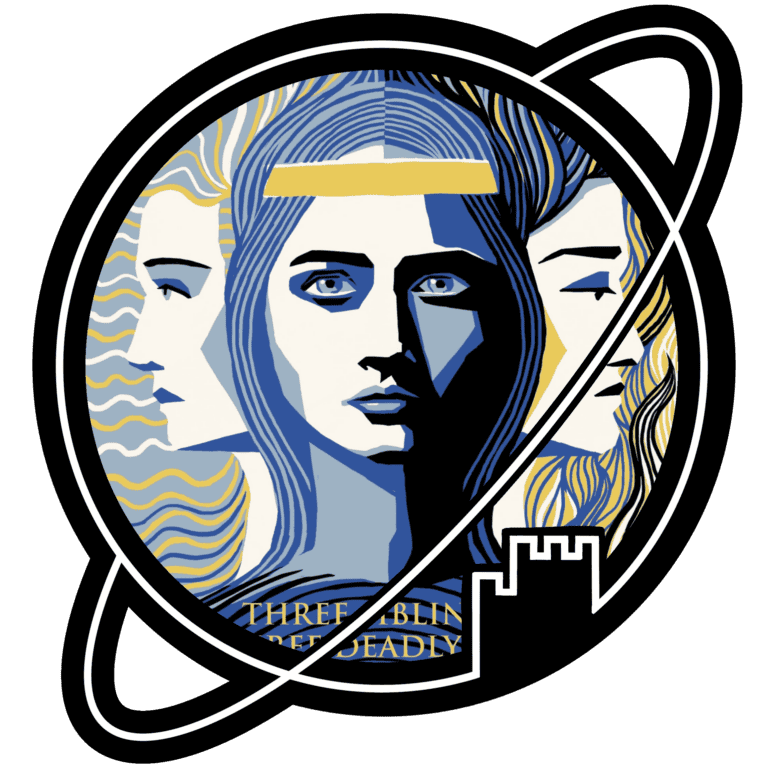

Listened to the audiobook with Robyn Holdaway – well read and characterised.
The first line of this review has to be that this is not a bad book, so don’t immediately write it off. It was, however, not for me.
I absolutely love the book’s setting – the Arthurian post-Roman, pre-Anglo-Saxon period in 6th century Britain. But while Holland uses names and some historical context, Sistersong does not really feel like a historical fantasy. The setting does feel distinct from the ‘standard’ high medieval setting of many fantasy novels, which I applaud! Still, I think that Holland could have done a better job of tying her story into the many legends that survive to this day about that time in Britain (and to be honest, I have opinions on some of the historical elements of this book, but I don’t think they’ll add anything to this review).
Instead, however, Holland tells a story that is loosely based on an early-modern folk ballad. While, that, too, is an interesting idea, I think the two do not go together that well.
Without revealing too much about the ending of the novel, I found the final chapters to be a bit forced: the story had not really built up to the ending of the ballad, which then felt a little shoehorned in.
This might in part be because I can’t help but feel that Sistersong tries to do too many things at the same time. There is the story of the encroaching Saxon conquest, the story of the mysterious stranger arriving at Dunbriga who incites sibling rivalry, the story of the Christianisation of the Britons, the story of a transgender man in a 6th century society, etc.
This is not helped by the novel’s style and structure. Holland chooses to go through the plot in many scenes, some of which I feel might have better been cut. And the plot developments in Sistersong feel a little back-loaded; there is a lot of build up in the earlier sections of the book that set up all the different story lines and themes that will then feel rushed in their execution later.
That said, I think that each of the storylines individually is interesting – it would perhaps just have been better to loose a few of them to focus on the main lines.
If I were Holland’s editor, I think I would have known which plotlines to cut, though looking at interviews, I think Holland would have resisted those changes.
I recognise I am on thin ice here, but I think Sistersong has an element of representation for the sake of representation: for example, I get that trans rights and a diverse representation of genders are a hot issue right now, but I am just not convinced that a story about 6th century Britain is the best way to address these politics, especially if they are not even the focus of the story (though we know it is possible to do it right).
Sistersong is a book that I have a long list of thoughts on. I think some elements are great and I did not regret listening to it. In the end, though, I think it probably bit off more than it could chew and the result is that the many storylines felt a little underdeveloped. Still, I think many readers – especially those who care more for representation and less for historical authenticity than me – will enjoy this book. So if you feel that is you, pick it up and give it a go!
Tagged:
See also:
- TV show developed by James Dormer
- Based on Twenty Thousand Leagues Under the Seas by Jules Verne
- Starring Shazad Latif, Georgia Flood, Thierry Frémont, Luke Arnold and others
- Released on 25 October 2024
- 1 seasons of 10 episodes

I had seen a trailer of this series on Amazon Prime (which included a kraken, by the way, a significant detail for those who know me) and had made a mental note to give this series a try. A few months later, when I was craving something with an adventure vibe, Nautilus seemed the smart choice. Though I have never read Twenty Thousand Leagues Under the Seas by Jules Verne, I once watched The League of Extraordinary Gentlemen, which very conveniently introduced me to the most iconic literary characters from Western European literature. The concept of an advanced, giant submarine was my main takeaway from the character of Captain Nemo. It’s also one of the things that made the original story a science fiction story. Science fiction, at this time, still isn’t my preferred genre. However, science fiction that takes place in the past somehow feels more like fantasy to me, and thus boosts my enjoyment more efficiently. All this to say that I basically expected the equivalent of a pirate adventure story when I started watching; nothing to complicated when it comes to plot, but hopefully with a strong enough sense of exploration and maybe also some compelling characters.
Luckily for me, my expectations were met and at some points even exceeded. Nautilus is a charming series that neatly balances adventure, drama and humour. Furthermore, despite its more light-hearted moments, it doesn’t shy away from tackling more heavy themes and subjects, in the case of Nautilus: the concept of self-determination, identity and loyalty, as well as the horrors of imperialism. I find that this dichotomy between heartfelt cheerfulness and seriousness is something I appreciate more in media nowadays. Maybe because I’ve encountered both too much superficial and ‘grimdark’ stories in the last few years and now crave authentic stories that more reflect the ambivalence of real life. Or maybe it is just a balance I currently miss in reality with all what’s going on all around the world… Whatever the case may be, Nautilus has a loveable, diverse cast of characters -with actors that clearly enjoyed this production- with sufficient emotional depth to portray both light and dark emotions. Furthermore, the sapiophile within me could really appreciate that most characters were very capable, and that conflict within the story was seldom the result of incompetence, but rather of conflicting goals or emotions. Nemo, Humility, Benoit and Millais (portrayed by Luke Arnold, by the way, something that made me nostalgic for Black Sails) were all intriguing characters in this regard.
Is the acting and writing in Nautilus unparalleled? No, but I felt it was sincere. And after a few episodes I was genuinely invested in the story and the fate of the characters. Furthermore, it was a delight to watch this series with Jasmijn who could reflect on all the strange flora and fauna in this series with her newly gained biology knowledge from Naturalis Biodiversity Center. I now know of the existence of the coconut crab – which is a very cool crustacean – and have learned that moray eels can hunt on land. The more you know!
Tagged:
See also:

Review: Torenhoog en Mijlenbreed / Wide as England, Tall as a Spire – Tonke Dragt
Planetary researcher Edu arrives on Venus for his second tour of duty exploring the area around the domed base. Even though the researchers are not allowed to venture into the tall forests that cover most of the planet’s surface, Edu is fascinated with them and dreams of taking a walk under their canopy.
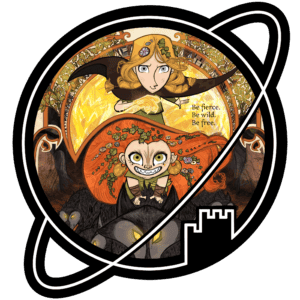
Review: Wolfwalkers – Tomm Moore & Ross Stewart
It is 1650, and the English Robyn Goodfellowe and her father have recently moved to the Irish town of Kilkenny. Robyn’s father is a capable hunter tasked by the Lord Protector to exterminate a remarkably unruly local pack of wolves that have been hindering the progress of civilization. To help her father, Robyn one day sneaks out of town to the forest. Here she discovers multiple secrets and meets a mysterious girl. A fateful meeting, that will change the lives of everyone in Kilkenny and the surrounding lands forever…

Review: Snow Crash – Neal Stephenson
Hiro Protagonist is a freelance hacker, CIC operative, best sword fighter in the world, and also a pizza courier for the Mafia. When it seems he might incur the wrath of Uncle Enzo by delivering a pizza late, he is saved by Y.T., a skateboarding courier with an attitude. They form a partnership in an attempt to unravel the ever-thickening plot around real-world diseases being spread via the digital metaverse and people attending a particular franchise church speaking in tongues.

Review: Kaos – Netflix
“A line appears, the order wanes, the family falls, and Kaos reigns.” This is the prophecy that haunts a tracksuit wearing Zeus, who desperately tries to stay relevant and powerful in modern day Greece. Meanwhile, Prometheus plots to make sure the prophecy comes true.

Review: Sistersong – Lucy Holland
In 6th century Britain, three sisters, the daughters of the King of Dumnonia in modern-day Cornwall, feel their culture is beset on all sides: as Saxons invade the land, a Christian priest tries to convert the Dumnonians and convince them to abandon their old faith. When a mysterious stranger arrives at the court, the love between two of the sisters is tested – while the third feels uncomfortable in her body and the role society has given her.

Review: Nautilus – Amazon Prime
In the year 1857, when the British East India Mercantile Company reigns the world in all but name, it uses its their stolen riches and enslaved laborers to build a vessel to crown it all: a massive submersible ship called the Nautilus. However, as the construction of the Nautilus reaches its conclusion, one of the ship’s designers, Nemo, leads a prisoner uprising and seizes the Nautilus for himself. In a quest for freedom, knowledge and vengeance, Nemo and his crew brave the dangers of the world’s oceans, as the East India Mercantile Company hunt them for the prize they’ve stolen. Is it possible to escape the Company’s reach and maybe destroy this world power for once and for all?










